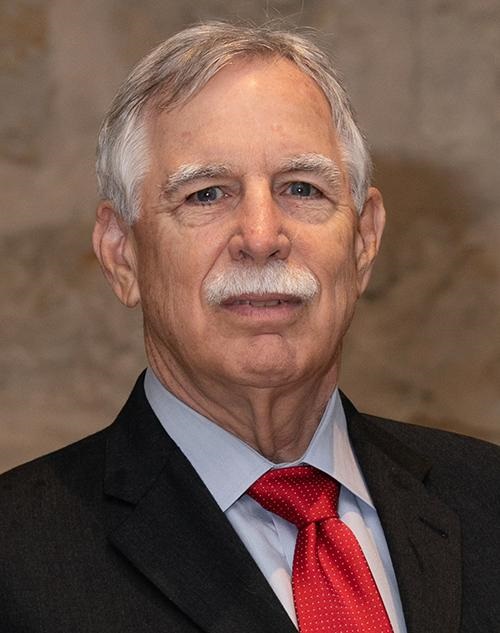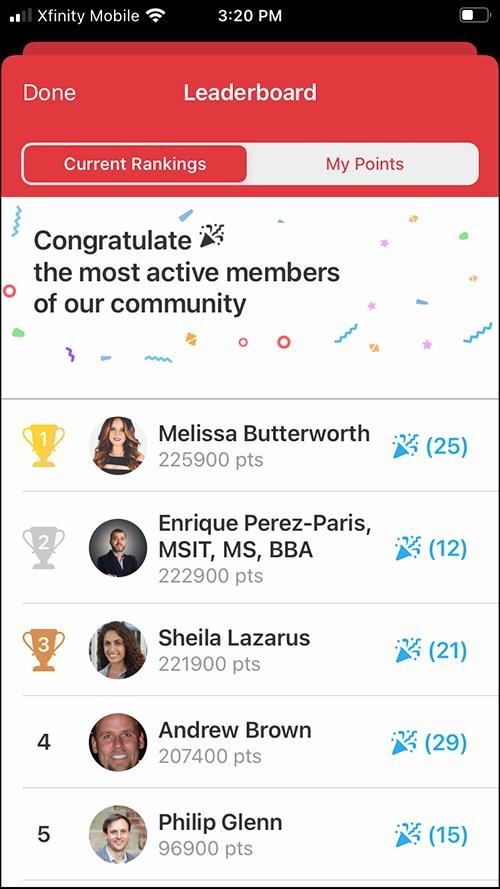Millennial Clinical Laboratory Managers Went Digital with Their Networking at Last Week’s Executive War College
With Millennials soon to make up the majority of the medical laboratory workforce, it’s only natural that digital networking is gaining momentum at events like the Executive War College
Attendees at last week’s Executive War College Conference on Laboratory and Pathology Management in New Orleans will tell you that the mobile app used by participants was on fire.
At any hour during the in-person event in New Orleans, attendees scheduled meetups, participants asked questions to conference organizers, and users discussed important clinical laboratory and anatomic pathology topics. All of those interactions occurred within the Whova meeting application, which served as the Executive War College’s virtual guide.
In many ways, widespread use of the meeting app reflects a younger crowd that lives life on mobile phones. It’s not all that different than the changing face of the clinical lab industry as laboratory veterans retire and new faces come in, said Robert Michel, Founder of the Executive War College (EWC) and Editor-in-Chief of Dark Daily’s sister publication The Dark Report.
“It’s clear from the soaring use of our conference’s meeting app at the Executive War College that a younger generation is changing how business is conducted during and after a lab industry conference,” he observed. “Generation X and Millennials are steadily influencing how people network at live events.”
Michel noted during his keynote at the conference that Millennials will make up 75% of the hospital lab and pathology workforce by 2025, so their digital habits will become the norm at in-person events.

88% of Attendees at Executive War College Used the Event App
Usage numbers aggregated during the EWC conference of people who downloaded and used the meeting app speak for themselves:
- A large majority of attendees (88%) downloaded the app.
- Users sent 11,398 messages in the app.
- There were 136 community board discussions posted.
- Users created 80 meetups, with 677 people attending those gatherings.
- There were 764,745 sponsor impressions in the app (in other words, clicks on a sponsor link or attendees navigating to sponsor material).
What the numbers don’t convey is that the conference’s meeting app was also fun to use!
“We love the app,” said Melissa Butterworth, co-founder, Managing Director and President of Advanced Strategic Partners, in a Whova discussion group.
Butterworth spoke during a special session at the Executive War College. She also took the No. 1 spot on the meeting app’s leaderboard for the event, collecting an impressive 225,900 points. Users gained points for the leaderboard based on activities they completed in the app.
Spirited competition ensued among the leaderboard’s top users, who jockeyed for position as the conference progressed. Plenty of off-topic conversations took place in the app as well, as attendees helped each other navigate New Orleans with tips about restaurants, local cemetery tours, or where to work out.

Clinical Laboratory Sponsors Reached Out to Attendees in New Ways
For sponsors and other vendors visiting the conference, the meeting app provided a different avenue to approach attendees beyond the typical networking that takes place during breaks, cocktail receptions, luncheons, and off-site parties.
For example, some sponsors shared white papers or YouTube videos via the app’s community boards or asked questions about topics of interest. Additionally, sponsors could respond directly to queries from attendees.
“At the Executive War College, there was clearly a sustained exchange between vendors looking to engage business development opportunities and participants who have pain points that need to be addressed and are looking for solutions,” Michel said.
The next Executive War College will return to New Orleans on April 25-26, 2023. Click on this link to access early registration discounts.
—Scott Wallask
Related Information:
Artificial Intelligence in Digital Pathology Developments Lean Toward Practical Tools
Keynote Speakers at the Executive War College Describe the Divergent Paths of Clinical Laboratory Testing as New Players Offer Point-of-Care Tests and More Consumers Want Access to Home Tests
27th annual meeting of medical laboratory and pathology managers delivers insights on the path ahead for diagnostics, ranging from the supply chain shortage and the ‘Great Resignation’ to advances in artificial intelligence and whole genome sequencing in service of precision medicine
Divergent paths of diagnostic testing are among the central topics being discussed at the 27th annual Executive War College on Laboratory and Pathology Management happening this week in New Orleans.
What’s coming as healthcare providers move to post-COVID-19 pandemic workflows will be of keen interest to clinical laboratory leaders attending this critical event. Several new and dynamic market changes are reshaping the development of, ordering, and reimbursement for medical laboratory tests. They include:
- Millennials as change agents in how care is accessed and delivered.
- New buyers of large volumes of clinical lab tests, such as retail pharmacies.
- How clinical laboratories can earn new sources of revenue while supporting precision medicine.
Clinical Labs Should Prepare for the ‘Coming Roller Coaster Ride’
Robert L. Michel, Editor-in-Chief of Dark Daily’s sister publication, The Dark Report, and Founder of the Executive War College, described the “coming roller coaster ride” for the pathology and clinical laboratory industries.
Amid the usual operational issues labs deal with (e.g., workforce shortages, supply chain disruptions, regulatory pressures), he noted the emergence of new and powerful forces pulling clinical laboratories and pathology groups in all directions.
“One primary factor is how Millennials will use healthcare differently than Gen Xers and Baby Boomers,” Michel noted. “Similarly, Millennials will make up 75% of the pathologists and the lab workforce by 2025.
“Another major force for change will be new buyers of clinical laboratory tests,” he continued. “For example, expect to see national retail pharmacy chains build thousands of primary care clinics in their retail pharmacies. These clinics will need lab tests and will become major buyers of near-patient analyzers and lab tests.
“A third interesting factor is that a new class of in vitro diagnostics (IVD) manufacturers are developing analyzers and test systems that use minimal amounts of specimens and return answers in minutes. Primary care clinics in retail pharmacies will be interested in buying these lab testing solutions,” Michel concluded.

Peer-to-Peer Learning Opportunities
With approximately 90 presenters scheduled, clinical laboratory leaders from such prestigious institutions as Johns Hopkins Hospital, Mayo Clinic, United Indian Health Services, and more will facilitate peer-to-peer learnings throughout the conference.
In addition, industry executives scheduled to deliver keynotes include Jon Harol, Lighthouse Lab Services Founder and President; Stan Letovsky, PhD, Vice President for AI, Data Sciences and Bioinformatics as well as other executives from Labcorp; and Curtiss McNair II, Vice President and General Manager of Laboratory Services at American Oncology Network.
In addition, several sessions and panel Q/A discussions will cover critical legal and regulatory issues and payer challenges facing the industry.
New Technologies, Workflows, Analytics
The 2022 Executive War College master classes, breakouts, panel discussions, and benefactor sessions will highlight several significant themes:
- Lab data analytics and utilization. Sessions this year are heavily weighted toward data analytics, aggregation, and utilization. Look for case studies demonstrating the value of lab data, and where and how data has become actionable and monetized. As Dark Daily previously reported, useful data structures have been difficult to achieve for clinical laboratories; however, the case studies featured during this week’s conference will demonstrate signs of progress and highlight lessons learned.
- Automation. Several case studies are planned that focus on expansion and modernization using laboratory automation. From Butler Health System, an independent hospital system in western Pa., Robert Patterson, MD, Medical Director of Pathology, Laboratory Medicine, and Laboratory Outreach, will detail steps Butler took that enabled its labs to better compete with other area health systems and national reference laboratories. Likewise, Eric Parnell, System Supervisor of Microbiology for Bronson Healthcare in southern Mich., will discuss his lab’s transition to and implementation of total laboratory automation.
- Genetic testing and next-generation sequencing (NGS). Quickly becoming the foundational disruptor technology on which many new and powerful clinical laboratory tests and procedures are based, genomic testing has now become accessible and affordable. Many clinical laboratories and pathology groups are using molecular diagnostics testing to deliver clinical value to referring physicians.
Other sessions include:
- Launching and scaling clinical NGS testing in a clinical environment (featuring a project at Rady Children’s Hospital in San Diego).
- How labs and payers can work together to achieve better outcomes and health equity using genomic testing.
- Effective ways to repurpose PCR and other genetic test instruments to build specimen volume and increase lab revenue.
Paths Forward for Clinical Labs and Pathology Groups
Another important topic being discussed at the 2022 Executive War College is how to position clinical laboratories and pathology groups for the next phase of modern healthcare.
Legal experts and consultants from McDonald Hopkins LLC, Advanced Strategic Partners, Pathology Practice Advisors, and ECG Management Consultants, among others, will answer questions on:
- Attracting capital for clinical labs and pathology groups.
- Emerging concepts in growth strategies.
- Business valuation factors.
- Unexpected disruptions during sales closings.
These are just a few highlights of the informative sessions and expert speakers scheduled during this week’s 27th annual Executive War College in New Orleans. Look for more coverage in Dark Daily during the days ahead and in upcoming editions of our sister publication The Dark Report.
Full details about the 2022 Executive War College can be found by clicking on this link. (Or copy/paste this URL into your web browser: http://www.executivewarcollege.com.)
Speakers, session topics, and the conference agenda can be viewed by clicking on this link. (Or copy/paste this URL into your web browser: https://executivewarcollege.darkintelligencegroup.com/executive-war-college-agenda-2022.)
—Liz Carey
Related Information:
New clinical and financial opportunities for labs at the first full Executive War College Conference on Laboratory & Pathology Management in two years
PRESS RELEASE FOR IMMEDIATE RELEASE THE DARK REPORT21806 Briarcliff Dr.Spicewood, TX 78669512-264-7103 o512-264-0969 f Media Contact: Bill Sinagrainfo@darkreport.com New clinical and financial opportunities for labs at the first full Executive War College Conference on Laboratory & Pathology Management in two years AUSTIN, TEXAS (March 29, 2022) – Lab executives and pathologists from many of the nation’s most prominent clinical laboratories will come together on April 27-28 to learn...Nagoya University Researchers Develop Highly Accurate MicroRNA Urine Test That Identifies Brain Cancer in Patients with Tumors
MicroRNAs in urine could prove to be promising biomarkers in clinical laboratory tests designed to diagnose brain tumors regardless of the tumor’s size or malignancy, paving the way for early detection and treatment
Researchers at Nagoya University in Japan have developed a liquid biopsy test for brain cancer screening that, they claim, can identify brain tumors in patients with 100% sensitivity and 97% specificity, regardless of the tumor’s size or malignancy. Pathologists will be interested to learn that the research team developing this technology says it is simple and inexpensive enough to make it feasible for use in mass screening for brain tumors.
Neurologists, anatomic pathologists, and histopathologists know that brain tumors are one of the most challenging cancers to diagnose. This is partly due to the invasive nature of biopsying tissue in the brain. It’s also because—until recently—clinical laboratory tests based on liquid blood or urine biopsies were in the earliest stages of study and research and are still in development.
Thus, a non-invasive urine test with this level of accuracy that achieves clinical status would be a boon for the diagnosis of brain cancer.
Researchers at Japan’s Nagoya University believe they have developed just such a liquid biopsy test. In a recent study, they showed that microRNAs (tiny molecules of nucleic acid) in urine could be a promising biomarker for diagnosing brain tumors. Their novel microRNA-based liquid biopsy correctly identified 100% of patients with brain tumors.
The Nagoya University scientists published their findings in the journal ACS Applied Materials and Interfaces, titled, “Urinary MicroRNA-based Diagnostic Model for Central Nervous System Tumors Using Nanowire Scaffolds.”

Well-fitted for Mass Screenings of Brain Cancer Patients
According to the National Cancer Institute (NCI), brain and other central nervous system (CNS) cancers represent 1.3% of all new cancer cases and have a five-year survival rate of only 32.6%.
In their published study, the Nagoya University scientists wrote, “There are no accurate mass screening methods for early detection of central nervous system (CNS) tumors. Recently, liquid biopsy has received a lot of attention for less-invasive cancer screening. Unlike other cancers, CNS tumors require efforts to find biomarkers due to the blood–brain barrier, which restricts molecular exchange between the parenchyma and blood.
“Additionally, because a satisfactory way to collect urinary biomarkers is lacking, urine-based liquid biopsy has not been fully investigated despite the fact that it has some advantages compared to blood or cerebrospinal fluid-based biopsy.
“Here, we have developed a mass-producible and sterilizable nanowire-based device that can extract urinary microRNAs efficiently. … Our findings demonstrate that urinary microRNAs extracted with the nanowire device offer a well-fitted strategy for mass screening of CNS tumors.”
The Nagoya University researchers focused on microRNA in urine as a biomarker for brain tumors because “urine can be collected easily without putting a burden on the human body,” said Atsushi Natsume, MD, PhD, Associate Professor in the Department of Neurosurgery at Nagoya University and a corresponding author of the study, in a news release.
A total of 119 urine and tumor samples were collected from patients admitted to 14 hospitals in Japan with CNS cancers between March 2017 and July 2020. The researchers used 100 urine samples from people without cancer to serve as a control for their test.
To extract the microRNA from the urine and acquire gene expression profiles, the research team designed an assembly-type microfluidic nanowire device using nanowire scaffolds containing 100 million zinc oxide nanowires. According to the scientists, the device can be sterilized and mass-produced, making it suitable for medical use. The instrument can extract a significantly greater variety and quantity of microRNAs from only a milliliter of urine compared to traditional methods, such as ultracentrifugation, the news release explained.
Simple Liquid-biopsy Test Could Save Thousands of Lives Each Year
While further studies and clinical trials will be necessary to affirm the noninvasive test’s accuracy, the Nagoya University researchers believe that, with the inclusion of additional technologies, a urine-based microRNA test could become a reliable biomarker for detecting brain tumors.
“In the future, by a combination of artificial intelligence and telemedicine, people will be able to know the presence of cancer, whereas doctors will be able to know the status of cancer patients just with a small amount of their daily urine,” Natsume said in the news release.
Biomarkers found in urine or blood samples that provide clinical laboratories with a simple, non-invasive procedure for early diagnosis of brain tumors could greatly increase the five-year survival rate for thousands of patients diagnosed with brain cancer each year. Such diagnostic technologies are also appropriate for hospitals and physicians interested in advancing patient-centered care.
—Andrea Downing Peck
Related Information:
Urine Test Detects Brain Tumors with 97% Accuracy
Urinary MicroRNA-based Diagnostic Model for Central Nervous System Tumors Using Nanowire Scaffolds



